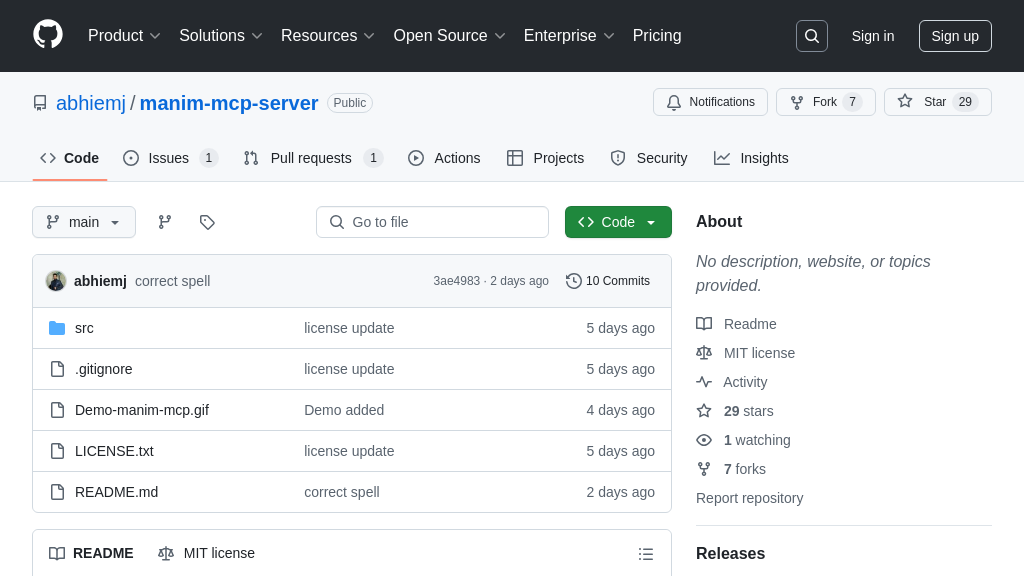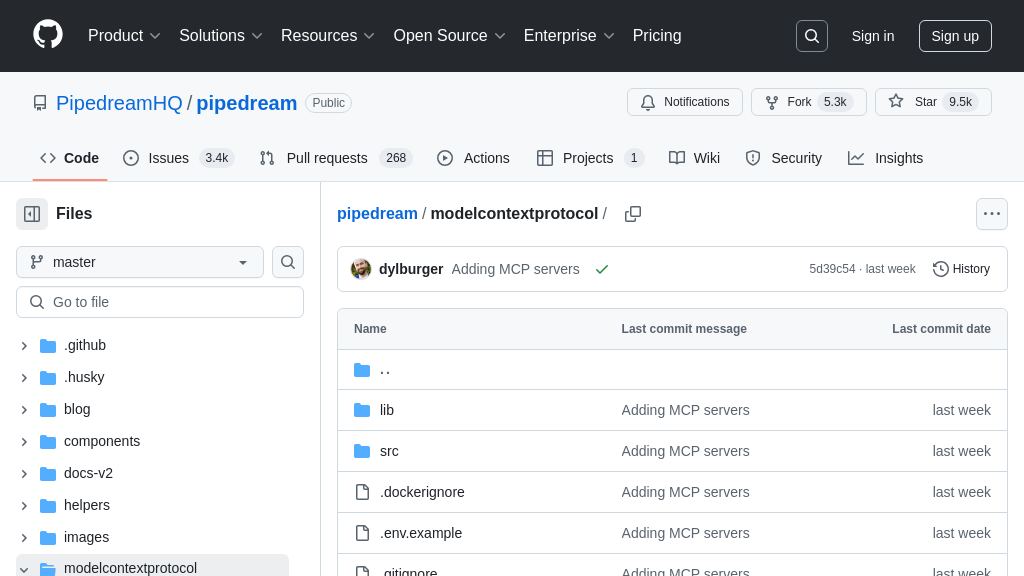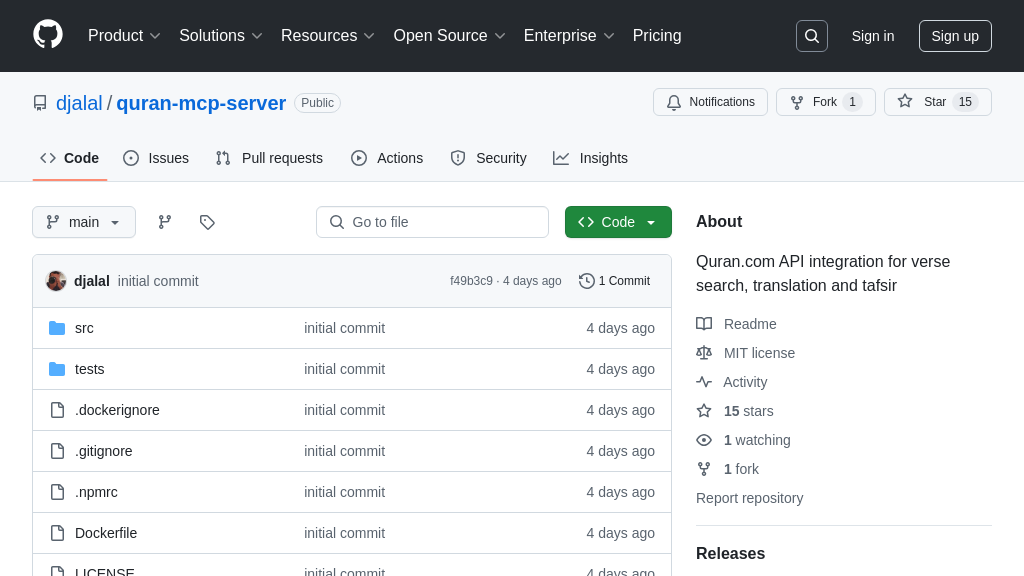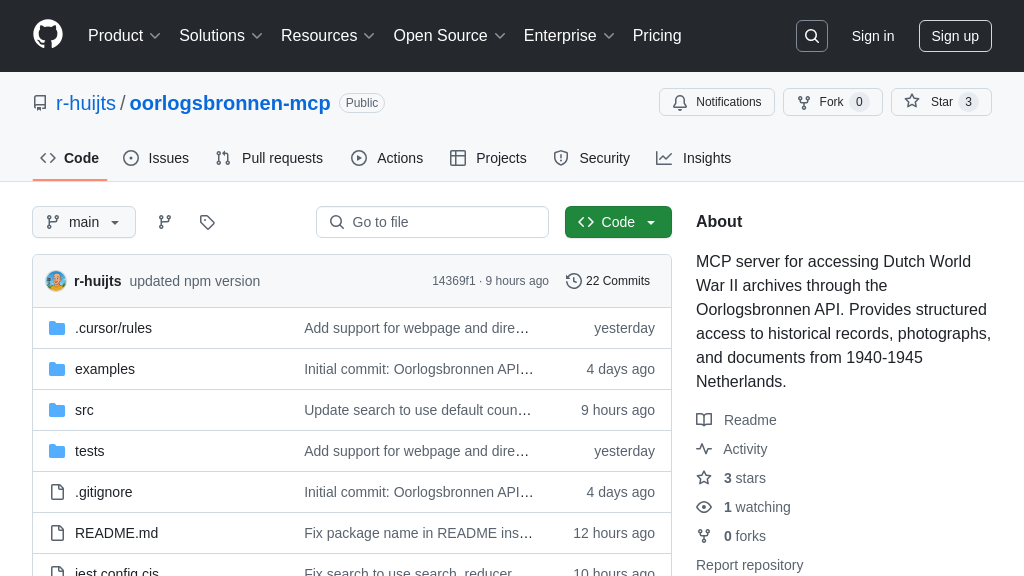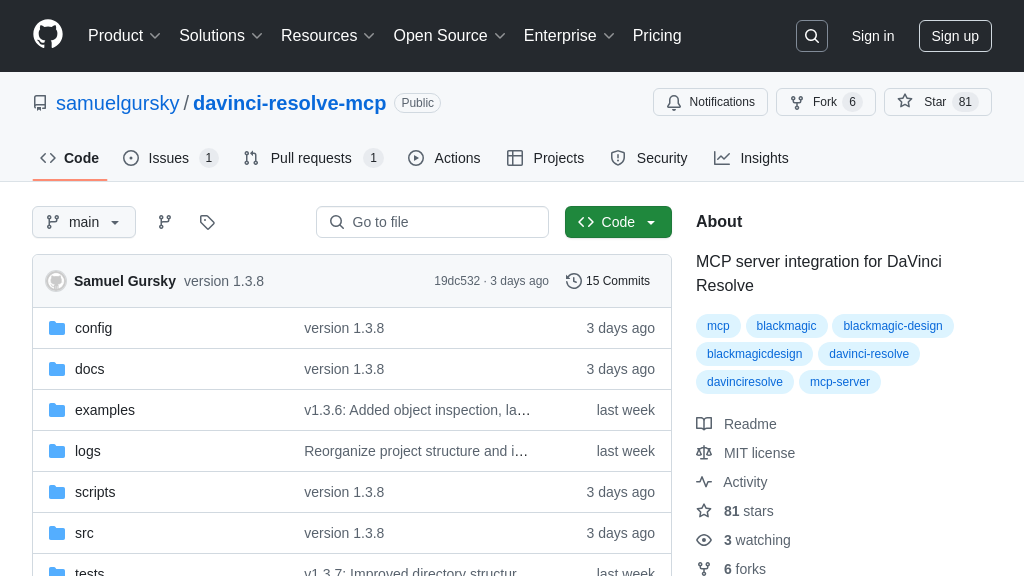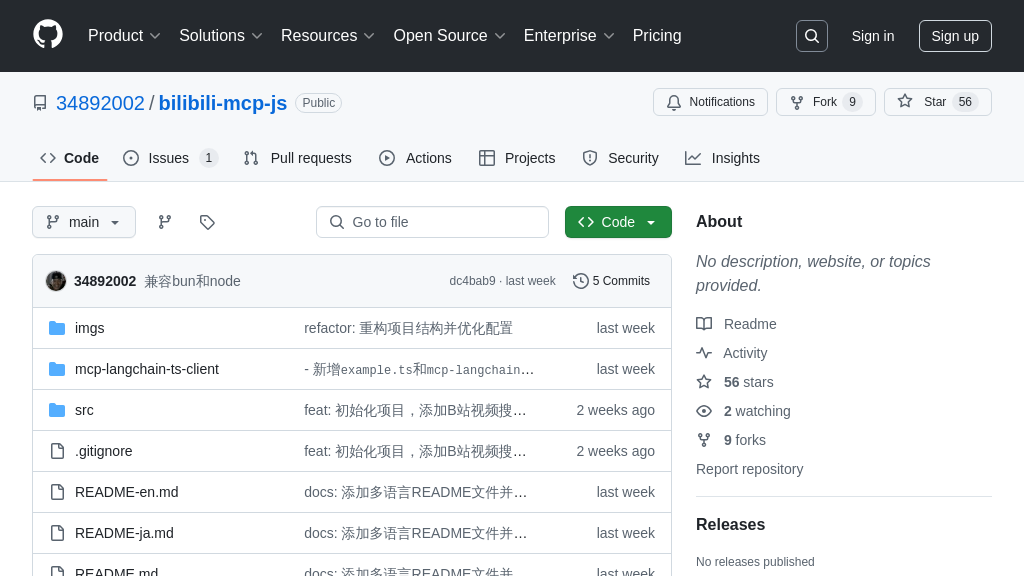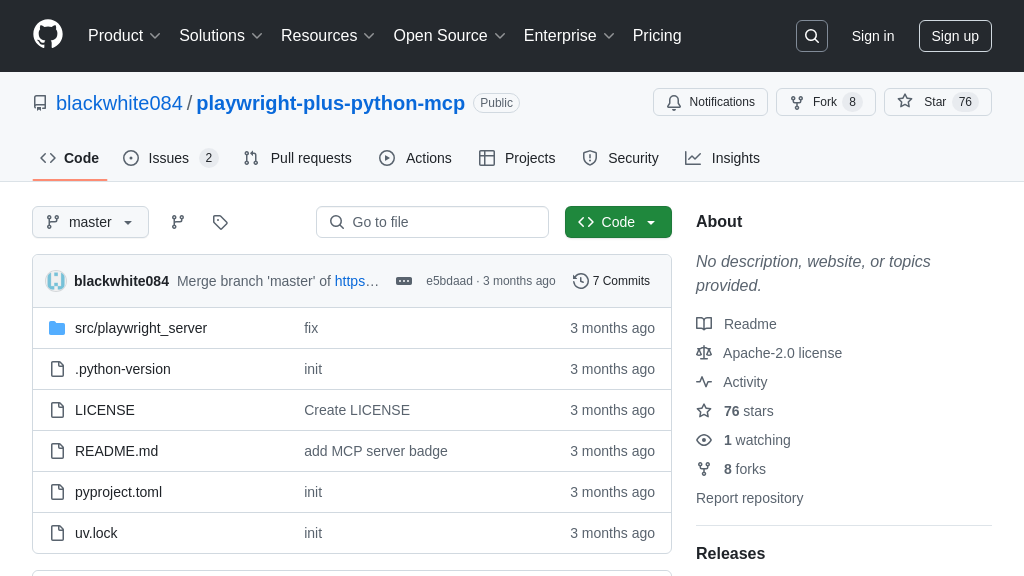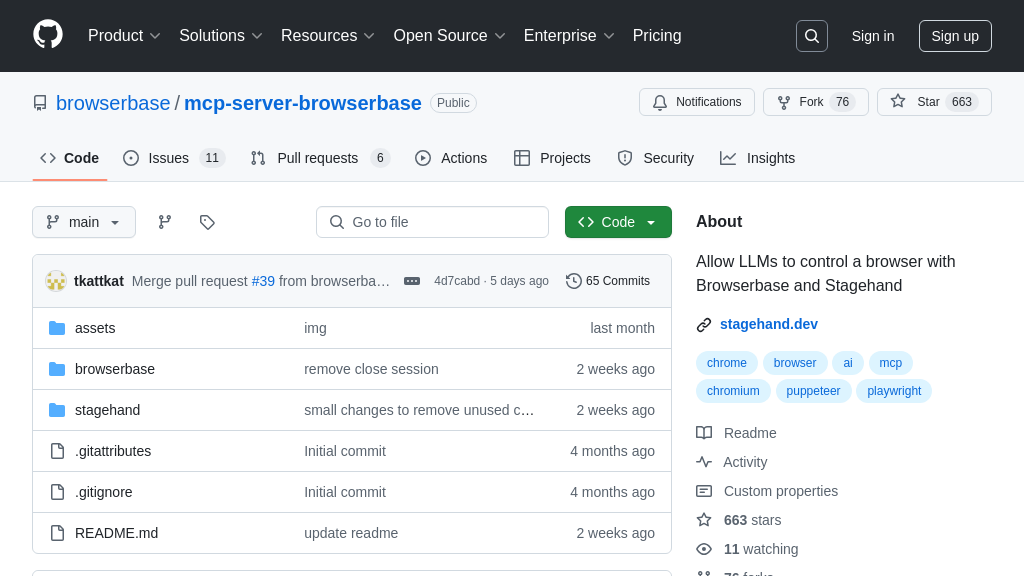mcp-security-audit
mcp-security-audit: An MCP Server for real-time npm security vulnerability scanning and reporting.
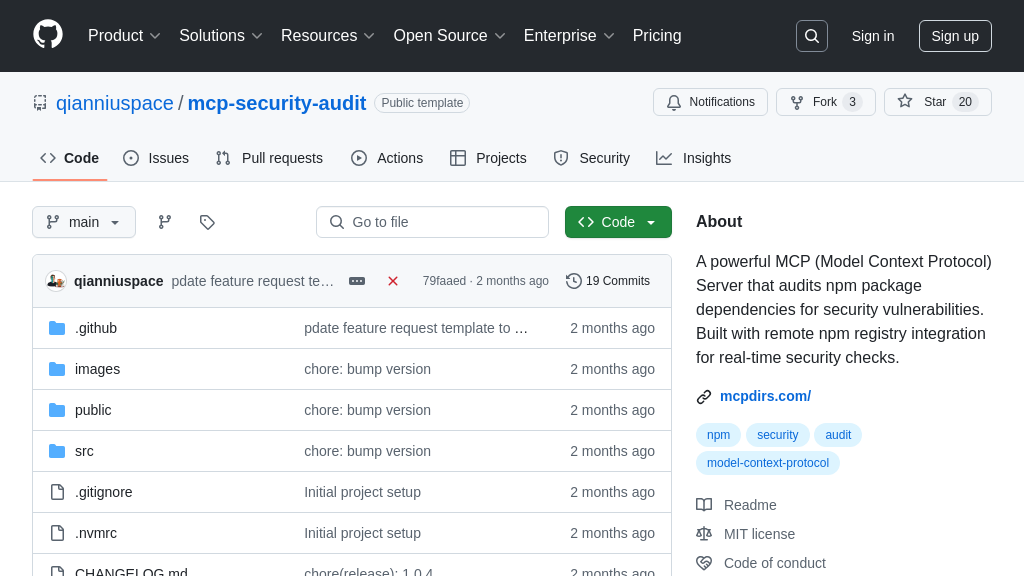
mcp-security-audit Solution Overview
The mcp-security-audit is an MCP server designed to enhance the security of AI model development by auditing npm package dependencies for vulnerabilities. It provides real-time security checks by integrating with the remote npm registry, identifying potential risks before they impact your AI applications.
This tool delivers detailed vulnerability reports, including severity levels, fix recommendations, CVSS scores, and CVE references, enabling developers to proactively address security concerns. It supports multiple severity levels and is compatible with npm, pnpm, and yarn package managers. By offering automated fix suggestions, mcp-security-audit streamlines the remediation process.
Seamlessly integrated into the MCP ecosystem, it allows AI models to securely access up-to-date security intelligence. The core value lies in its ability to provide continuous, automated security assessments, reducing the risk of incorporating vulnerable dependencies into AI projects. It can be easily installed via Smithery or manually configured using NPX, making it accessible to a wide range of development environments.
mcp-security-audit Key Capabilities
Real-time Vulnerability Scanning
The mcp-security-audit tool performs real-time security vulnerability scanning of npm package dependencies. It leverages the remote npm registry to check for known vulnerabilities as dependencies are added or updated in a project. This proactive approach helps developers identify and address security risks early in the development lifecycle, preventing potential exploits and data breaches. The tool analyzes the project's package.json file, identifies all dependencies, and queries the npm registry for any reported vulnerabilities associated with those packages and their specific versions. This ensures that the AI model, which relies on these dependencies, is not exposed to known security flaws.
For example, a developer working on an AI-powered chatbot can use this tool to automatically scan the chatbot's dependencies for vulnerabilities before deploying it to production. This helps prevent the chatbot from being compromised by malicious code injected through a vulnerable dependency.
Detailed Vulnerability Reporting
The tool generates comprehensive vulnerability reports that provide detailed information about each identified security issue. These reports include the package name, affected version, severity level (critical, high, moderate, low), a description of the vulnerability, CVE (Common Vulnerabilities and Exposures) identifier, GitHub Advisory ID, and a recommendation for remediation, such as upgrading to a patched version. The reports also include CVSS (Common Vulnerability Scoring System) scores and vectors, providing a standardized measure of the vulnerability's severity and impact. This level of detail enables developers to quickly understand the nature of the vulnerability, assess its potential impact, and take appropriate action to mitigate the risk.
For instance, if a report identifies a high-severity vulnerability in a logging library used by the AI model, the developer can immediately investigate the issue, upgrade to a secure version of the library, and redeploy the model to prevent potential security breaches. The structured format of the report facilitates integration with other security tools and workflows.
Automated Fix Recommendations
mcp-security-audit provides automated fix recommendations to help developers quickly resolve identified vulnerabilities. For each vulnerability, the tool suggests the minimum version of the package that contains the fix, allowing developers to upgrade to a secure version with minimal disruption to their project. The tool also indicates whether a fix is available and, if so, provides the specific version number. This feature streamlines the remediation process, reducing the time and effort required to address security vulnerabilities. By providing clear and actionable recommendations, the tool empowers developers to proactively manage their project's security posture and minimize the risk of exploitation.
Consider a scenario where the tool identifies a moderate-severity vulnerability in a utility library used by the AI model. The tool recommends upgrading to version X.Y.Z, which contains the fix for the vulnerability. The developer can then easily update the dependency in their package.json file and redeploy the model, ensuring that the vulnerability is resolved.
Compatibility with Package Managers
The mcp-security-audit tool is designed to be compatible with multiple package managers, including npm, pnpm, and yarn. This ensures that developers can use the tool regardless of their preferred package manager, without having to modify their existing workflows or configurations. The tool automatically detects the package manager being used in the project and adapts its behavior accordingly. This broad compatibility makes the tool accessible to a wide range of developers and projects, promoting widespread adoption of security best practices.
For example, a development team using pnpm to manage their AI model's dependencies can seamlessly integrate the mcp-security-audit tool into their CI/CD pipeline to automatically scan for vulnerabilities before each deployment. The tool will correctly identify the pnpm lockfile and analyze the project's dependencies, providing accurate and reliable security assessments.
Integration Advantages
The mcp-security-audit tool seamlessly integrates into the MCP ecosystem, providing a standardized and secure way to assess the security of AI models. By adhering to the MCP protocol, the tool can be easily integrated with various MCP clients and servers, enabling automated security checks as part of the model development and deployment process. This integration ensures that security is a first-class citizen in the AI development lifecycle, rather than an afterthought. The tool's standardized API and data format facilitate interoperability with other security tools and platforms, enabling a holistic approach to AI security.
For instance, an organization can integrate the mcp-security-audit tool with their existing CI/CD pipeline to automatically scan AI models for vulnerabilities before they are deployed to production. The tool's output can be used to trigger alerts, block deployments, or generate reports for security teams, ensuring that only secure models are deployed.
